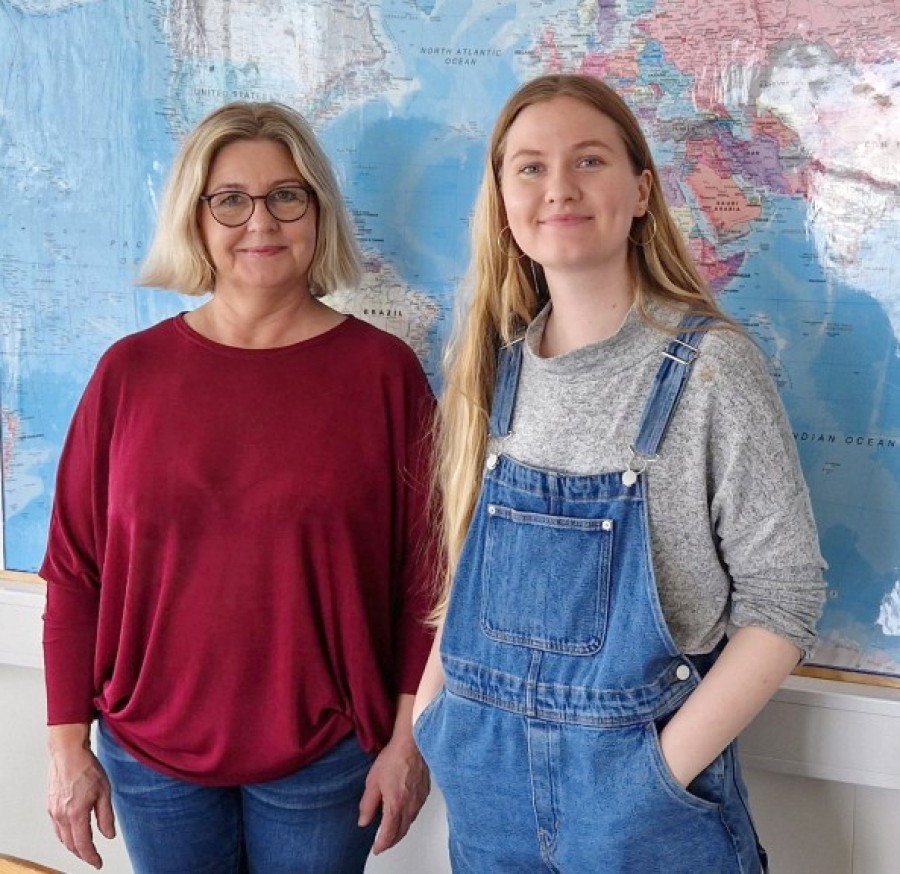
READING HACK | “We will just go with the flow”

Recently the project Reading Hack | Creative Reading received a grant from the Development Fund for Immigration Issues. The project is a co-work between the Reykjavík City Library in Gerðuberg (Breiðholt neighbourhood) and The Tin Can Factory language school.
“The idea is to have an empowering reading program for all teenagers between the ages of 12 and 16, everyone is welcome, regardless of background and mother tongue”, says Gígja Svavarsdóttir, manager of The Tin Can Factory. “When there are problems with reading, the reading owns you, you don't own the reading. How can we work with those who have difficulties with reading ? We start by finding out what their strengths are!”
Svanhildur Halla Haraldsdóttir is a specialist at the Library in Gerðuberg.
“It sure is possible to go through life without reading, you can manage, it's surprising how many people do not know how to read. It becomes such a shame, the older you get the more secret it becomes, people develop ways to fake it and hide it. Therefore it's important to catch children before the age of 16, when compulsory schooling ends, it can encourage them to continue some kind of education. Attendance will not be compulsory, no one will receive a grumpy emoji for not showing up and we just believe it will be so much fun that no one will want to miss out. It is very important that the young people sign up on their own terms, because they want to learn to enjoy the text, create and have fun with their peers - not because their parents are sending them.”
Gígja agrees,
“We are going to find out what their interests are, what they want to learn and then what the obstacles are, is it dyslexia, lack of knowledge of the western alphabet or is there something else preventing them from reading for their own benefit and enjoyment? It's important to take it from the field of interest and build patience towards yourself, learning is a process and it never ends.”

For everyone, regardless of their mother tongue
The course focuses on the Icelandic language, but it is designed for everyone who wants to connect better with text and reading, regardless of their mother tongue. In this way, a community of young people with different backgrounds, education and interests will be created.
“The focus will not be on grammar but on reading, writing and creativity, creative reading. Participants set themselves goals with the teachers at the beginning through a reading test, but then we go with the flow in the direction the young people want, teaching them to value texts that they can utilize. We know that writing has a very strong effect on literacy, there is a lot of work being done in the academics now on writing for literacy. Even though people are not strong readers, most of them can speak, for example record some text that appears as written. Along the way, we will have small milestones, like when we open the Instagram page or insert a new video with subtitles.”
“Texts is all over”, says Svanhildur, “on social media, in song lyrics, in movies, everywhere. The intention is to draw attention to this, and then the participants lead the way from there i.e. what media they want to use, both to practice reading and to create content. Creative reading can be, for example, a rap, a poem or a poster. If they like to work in Photoshop, they can, or Instagram. For example, one tasks of the week can be to take a picture every day and write one sentence with each one to post on Instagram. Another could be, instead of receiving a vocabulary list of words related to the family, brother, father, sister, etc., they could do an interview with their grandmother.”
Using the technology to help you is not cheating
Instructors in the course have extensive experience in both teaching and creative writing. In addition to working on a variety of projects, participants will learn about various correction programs and how they can use them to help them with their own text. Contrary to what someone might think, that this would classify as some kind of cheating, Gígja and Svanhildur claim that it is exactly the opposite, that no one needs to be afraid of writing because there is absolutely no need to be 100% on top of it, the technology is there to help.
Part of the program is to make a final product, create something, e.g. create a book that is not a beginners book for children but something to be located in the youth department.
“I lend a lot of books to teenagers and children at the library and I think it's important that there is material for adults and young people to read, not just for children. The final product does not have to be a traditional book with a story, it can also be e.g. a book with the ten best instagram photos/text, a podcast, an audio book, a comic or something else the participants can think of.”
“For me, the library was the ideal place for the course, it's an open public space, many of the young people have already created their own safe zone at the library, a familiar environment.” Gígja says in conclusion.
Here you can find Registration and more information in English, Polish, Arabic, Farsi, Russian and Iceandic.
Fore more information:
Gígja Svavarsdóttir | gigja@skoli.eu
Svanildur Halla Haraldsdóttir | svanhildur.halla.haraldsdottir@reykjavik.is